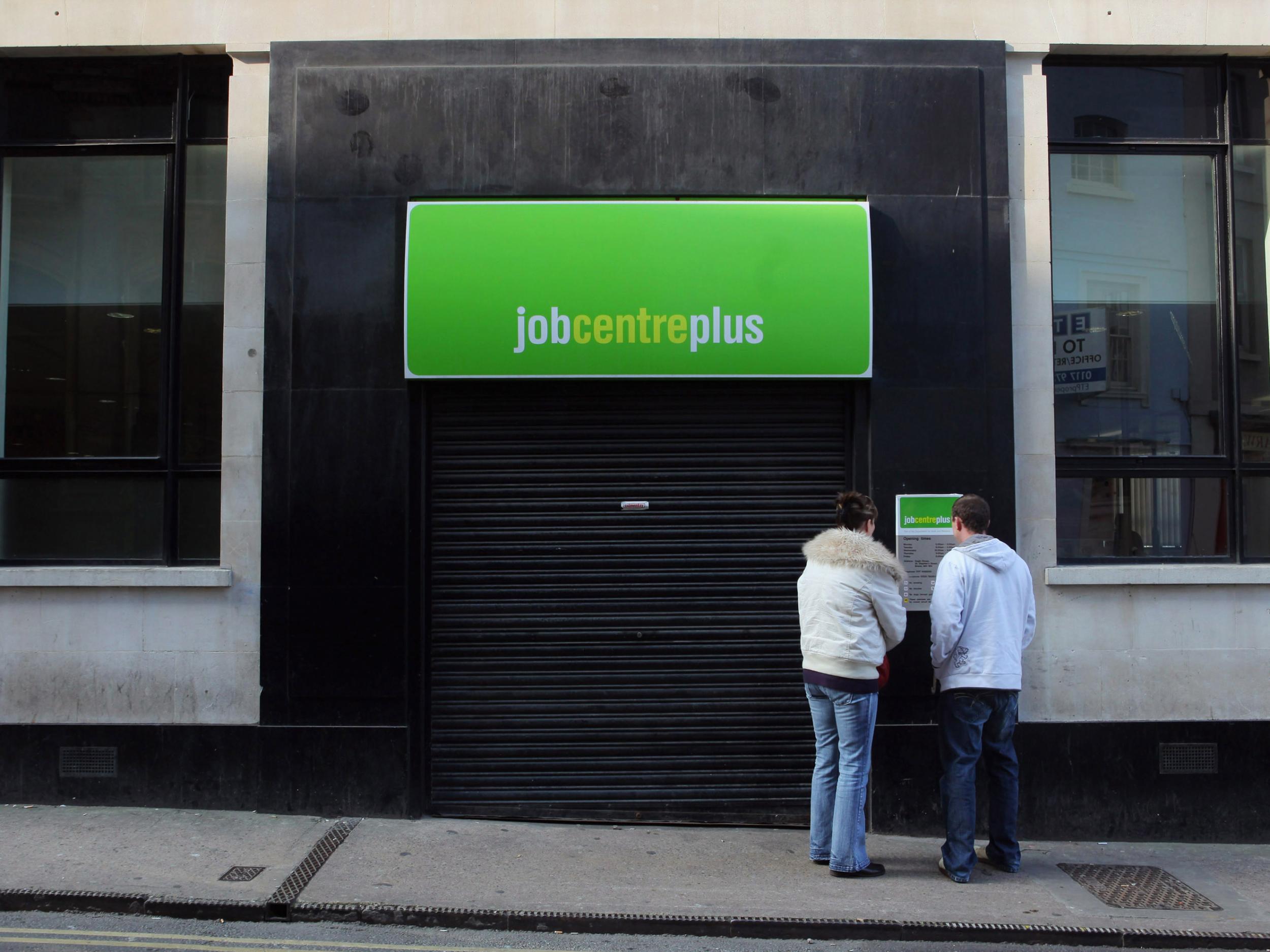'Forgotten unemployed': 300,000 jobless people in UK not claiming benefits
Unemployed people and low earners – mainly older women and younger men – are missing out on £2.9m in benefits each week, Resolution Foundation think tank finds

Your support helps us to tell the story
From reproductive rights to climate change to Big Tech, The Independent is on the ground when the story is developing. Whether it's investigating the financials of Elon Musk's pro-Trump PAC or producing our latest documentary, 'The A Word', which shines a light on the American women fighting for reproductive rights, we know how important it is to parse out the facts from the messaging.
At such a critical moment in US history, we need reporters on the ground. Your donation allows us to keep sending journalists to speak to both sides of the story.
The Independent is trusted by Americans across the entire political spectrum. And unlike many other quality news outlets, we choose not to lock Americans out of our reporting and analysis with paywalls. We believe quality journalism should be available to everyone, paid for by those who can afford it.
Your support makes all the difference.Around 300,000 people who are “forgotten unemployed” or on a low income are missing out on financial support they are entitled to, according to a new report.
The group, made up mainly of older people, especially women aged 55 to 64, and younger men, were not claiming unemployment benefits worth at least £73 a week, the Resolution Foundation found.
This amounts to a weekly total of £21.9m in benefits that goes unclaimed.
Most of those missing out on financial support were jobless, prompting the think tank to dub them the “forgotten unemployed”.
However, a significant minority were in work and entitled to claim universal credit or Jobseeker’s Allowance, according to the report.
It is possible for someone to claim jobseeker’s allowance if they are not working or employed for less than 16 hours a week and if their partner is either not working or working fewer than 24 hours a week.
An individual’s entitlement to the benefit ends once their income reaches £78 a week.
Under universal credit, which will eventually replace Jobseekers Allowance, that point is £116, or higher if the claimant also receives support for their rent.
The Resolution Foundation has said the Department for Work and Pensions (DWP) must do more to examine the reasons why so many eligible people do not claim.
As universal credit is currently being rolled out, it said this would be a good time to do this.
The new benefit system could provide a “much needed refocus” on groups at the edges of the labour market who need support, the think tank said.
It also suggested universal credit could still miss some key groups who currently do not claim support.
The Government should look into linking of household survey data, with more detail of an individual’s background and administrative data, it said.
This could “plug the gaps” and provide a better understanding of those who need support and those who do not claim, it added.
“Over the last 20 years, a growing number of unemployed people are not claiming unemployment benefits,” said David Finch, senior economic analyst at the Resolution Foundation.
”Policy makers have generally been pretty relaxed about this gap, assuming that is largely due to people finding new work very quickly or having other sources of financial support at home.
“But while there are good reasons for some people not to claim benefits, there are also around 300,000 forgotten unemployed people who are falling through the cracks and not getting the financial support that they need and are entitled to.”
A DWP spokesperson said: “Anyone who believes they’re entitled to out of work benefits should contact Jobcentre Plus – online, over the phone or by visiting their local branch.”
They added that “advisers and work coaches are on hand to help people claim what they are entitled to, and can signpost to other support options available.”
If you would like to find out if you are entitled to job seeker’s allowance or universal credit, follow this link.
Join our commenting forum
Join thought-provoking conversations, follow other Independent readers and see their replies
Comments